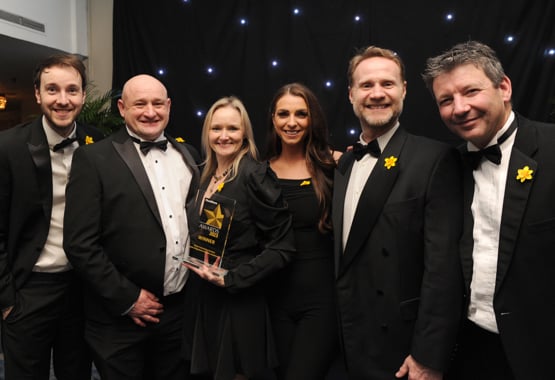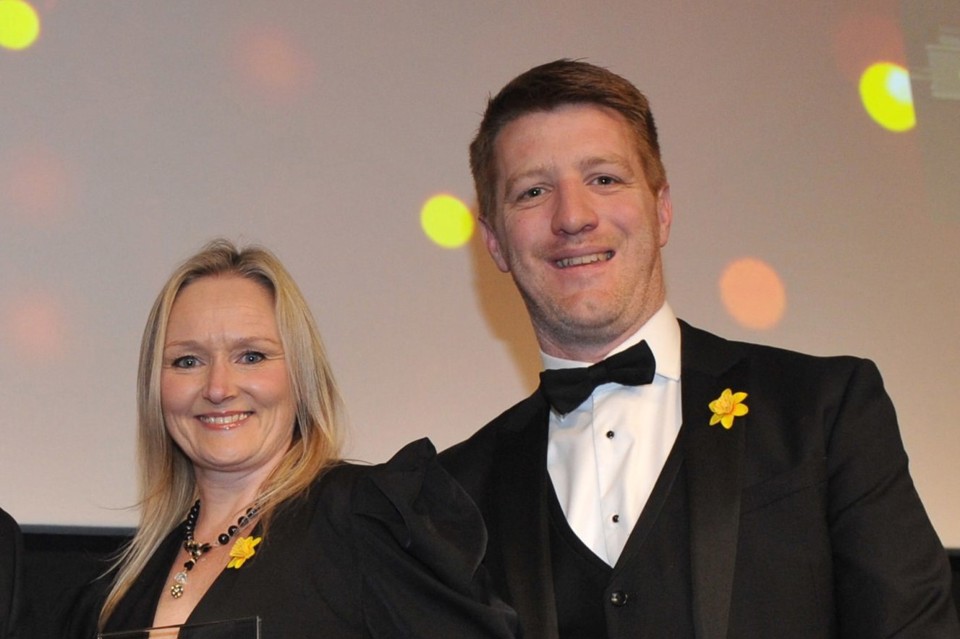Telent Technology Services has mastered the use of data insights to reduce the likelihood of its engineers experiencing stress and fatigue, earning it a Fleet News Award for Wellbeing and Inclusivity in Fleet.
As a result of the introduction of Telent’s fatigue management processes, the company has reduced job allocation time by 80%, vehicle collisions per million miles driven by 25% and at-fault-related incidents by 20%.
Its overall wellbeing policy, meanwhile, has helped to reduce the number of work absences due to ill health to just 1%.
Line managers can use the insights to locate mobile workers and send out support to locations, if required. The company also operates a 12-hour door-to-door working hours policy, where engineers are sent a text message if they approach their working time limit. A risk assessment is then conducted to identify steps to minimise the risk of fatigue.
Telent invests in line management training to help aid the recognition and support of staff mental health issues and provides ‘how to’ advice guides to help encourage employees to be more self-aware. It also provides a support services helpline and website, e-learning materials, and wellbeing webinars to help reduce the stigma around mental health.
The company has an equality, diversity and inclusion (ED&I) policy that has been developed based on employee feedback, tackling inequality in employment, skills and pay in the market. Telent actively promotes new ideas and initiatives to support its driver safety programme and runs monthly awareness campaigns suggested by employees.

Miranda Faulconbridge (pictured third from left, above), head of driver safety at Telent Technology Services, tells Fleet News about some of the challenges and successes she has experienced when implementing robust fleet policies that consider wellbeing.
Fleet News: There’s been a greater focus on driver wellbeing within the fleet industry since the coronavirus pandemic, has much changed at Telent?
Miranda Falconbridge: I'd say in the last three years, really, it's been quite a heavy focus across many industries in terms of ED&I. But wellbeing has always been top of the priority within Telent. We’ve had an occupational health advisor with us for years. She's a nurse, she supports people's wellbeing, she’s somebody you can go to in confidence. And then only recently in the last two years, what we've done, we've brought on lots of different services via a wellbeing intranet site.
There are online seminars that you can book a place on and they're really open forums. I've been on a couple and it's everybody just sharing their experiences.
FN: Do you think it’s important for companies to provide support for employees on issues not related to their work?
MF: I think many leadership teams miss the point about work-life balance because if you can give back to employees a positive culture is harnessed. You'll also have improved productivity and the retention of employees that want to stay with you.
The majority of people only come to work to be able to earn a living and to support their family. We recognise that and we want people to get home safe and well at the end of every day. That's quite a common slogan that you hear throughout the business.
With the fatigue management system that we have in place, we are constantly looking out for employees, making sure that they're not fatigued in any way and carrying out the risk assessments when needed. Since the introduction of that we've had some really interesting case studies come to light, which have highlighted personal issues within the family place that have impacted on work. So, we've been able to really just listen to the employees and help them with guidance.
We can't afford for anybody to turn up to work that's tired, fatigued or stressed. We need that work-life balance to work for the benefit of the employee as well as the business. I do think that lots of organisations probably miss the whole point of that and the value that it brings to the workforce and productivity.
FN: Have you had to create any specific elements to support the company’s wellbeing goals?
MF: When we introduced the fatigue management system, I project managed that from the actual planning and design of the text messages that get sent, when they get sent and also the design of the risk assessment. We have an electronic form which allows us to capture everything in real time.
The phrasing of the questions was quite careful and also, from a privacy point of view, it's really important that when the employee rings the Service Desk no personal questions are asked at that stage. They just need to determine whether they're at risk due to fatigue, or whether they're likely to work beyond 12 hours. If they're identified as an at-risk case, that then goes to the escalation manager.
FN: In a business where your employees face work-related risks outside of driving, how do you ensure fleet policy is also a priority?
MF: The challenge is lots of people may not consider their vehicle as work. Lots of organisations have DSE assessments for people working in the office and policies surrounding office working, but actually, when you're driving for work, the vehicle is your office. We have to apply the same health and safety rules.
We have a duty of care. If you're driving for us on business, we want your vehicle to be safe, we need your driving position to be safe. It doesn't just end when you get in the vehicle. It's throughout your day, whether you are driving, whether you're on site, whether you're at home, the same set of health and safety principles apply.
One of the things that Telent has done is put me in charge of driver safety. My role is an entirely separate role to the fleet team. I work very closely with the fleet team, but their focus is operationally managing the fleet. Mine is around driver safety policies, compliance, and communication. A big part of my job is communicating with drivers and getting feedback from them.
FN: A lot of fleets have policies to save fuel and save wear and tear on their vehicles, such as anti-idling, but do initiatives like these work at odds with a focus on wellbeing?
MF: There could be conflicts, but the person's wellbeing is always going to overtake any cost element.
We do have employees that need to sit in their vans in Winter to warm themselves up. We don't actually use idling as a key metric in our telematics system because we some of our employees, such as those working on the highways, have to sit in a vehicle for some genuine work reason and some of them actually operate equipment linked to their vehicles.



















Login to comment
Comments
No comments have been made yet.